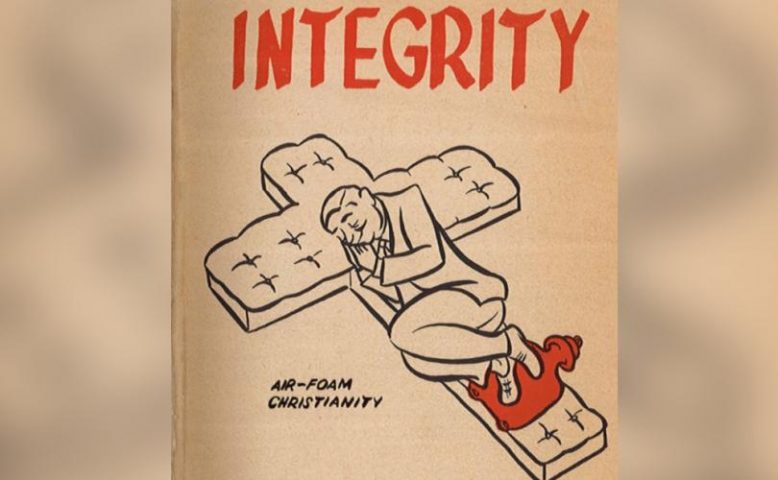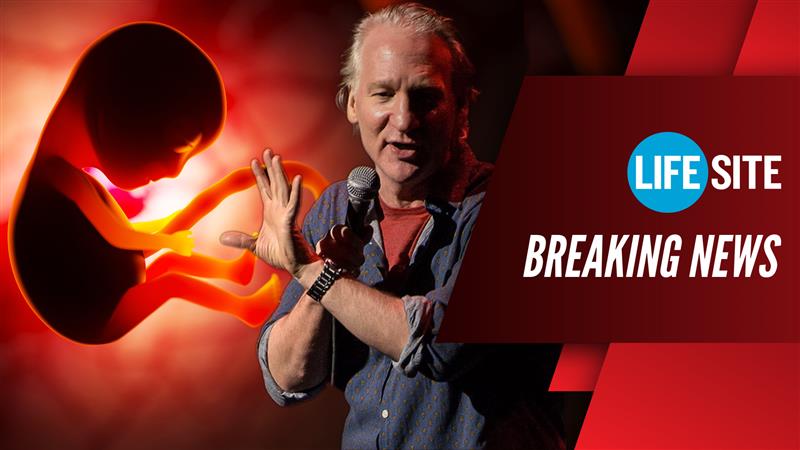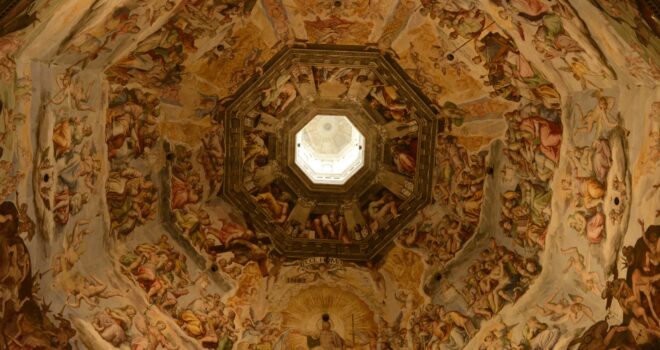The Word You Are Looking for Is “Monster”, by Shawn Carney
March 5, 2019Daily Reading & Meditation: Ash Wednesday (March 6)
March 6, 2019
By Stephen Kokx, LifeSiteNews, March 4, 2019
 March 4, 2019 (LifeSiteNews) — One of the worst lies about the Catholic Church as it existed before Vatican II is that it was rigid, legalistic, and imbued with clericalism.
March 4, 2019 (LifeSiteNews) — One of the worst lies about the Catholic Church as it existed before Vatican II is that it was rigid, legalistic, and imbued with clericalism.
Anyone who’s read pre-conciliar papal writings on Catholic Action (see here, here, and here) knows that such charges are entirely bogus. Catholics living in the late 19th and early 20th century were anything but unthinking, rosary-counting dullards. (Even if they were, at least they prayed and didn’t dissent from Church doctrine – something that can’t be said for most of today’s laity).
“Catholic Action,” for those who are unaware, is the name the Church previously used to describe lay efforts directly and indirectly aimed at the restoration of individuals, families, and societies to Christ. Today, the Church calls on the faithful to support the “New Evangelization.” The two concepts are radically different, given that the New Evangelization only asks Catholics to “witness” to their faith and not proselytize.
One person widely known for her pre-Vatican II activism in the United States is Dorothy Day. Controversial to some, a prophet to others, Day, in her own way, sought to apply Catholic doctrine to the corrupt modern world.
Unfortunately, the amount of attention historians give to Day has resulted in Catholics in the 21st century being less familiar with other counter-culturalists alive at the same time. Writers like Carol Robinson and Ed Willock, a friend of Day’s about whom she wrote fondly after his premature death in 1960, are two such persons.
Born in 1911 and 1916 respectively, Robinson and Willock co-founded Integrity magazine in October 1946 in New York City. Their mission, according to Alex Barbas, founder of Arouca Press, was to synthesize religion and daily life.
“Integrity warned against complacency in the living of the faith in the modern world and often criticized American Catholics’ penchant for compartmentalizing their faith,” Barbas said in a phone interview with LifeSiteNews.
“In their first issue, Willock and Robinson said that the solution was not going to come about on the natural or ethical level. Nor would it come about through an intensification of devotions alone. The root issue, for them, was what they called ‘the integration of the natural and supernatural orders.’”
Barbas, a family man who lives in Waterloo, Ontario, is re-printing every issue of Integrity over its 10-year existence. He has spent the better part of the last decade tracking them down in libraries, on the internet, and through personal contacts. He has done the same for other rare, out-of-print Catholic books, which he sells on his website for a small profit. Volume 1 of the first year of Integrity will be released byArouca Press in the near future.
Fr. Kenneth Novak, the former editor of Angelus Press, released during the 1990s and early 2000s several books featuring Integrity essays (they can be purchasedhere and here). But Barbas believes there is untapped wisdom in the vast number of Integrity articles that have not yet been reprinted.
“They might not have all the answers to our problems today, but Ed Willock’s and Carol Robinson’s insights on family life, politics, leisure, and every other area of Catholic living are unparalleled. They are wonderful examples of how the faith can allow a soul to see through the vanity of the world and its illusory ideas,” he said. “Unlike many of today’s Catholics involved in political life, they didn’t round off the edges of their faith or speak generally about ‘the natural law.’ They presented the faith integrally.”
Barbas says he finds the duo fascinating because not only were their writings and speeches prophetic, they lived the faith too. “Willock had a large family and lived on a farm as part of a Catholic community in Marycrest, New York. They practiced what they preached! There is much Catholics today can and must learn from them and their essays, which were clearly rooted in the great, anti-liberal writings of Pius IX, Leo XIII, and others.”
A glance at just a few of the article headlines published in Integrity reveals its unique, all-encompassing orientation:
-
“The family has lost its head”
-
“Why aren’t Americans contemplative?”
-
“How modern man became merry”
-
“What is a grown-up?”
-
“Recreation and children”
-
“Accentuating the positive”
-
“Forward to the land”
-
“About television”
-
“The new science of society versus the laws of life.”
In some ways, Integrity is the pre-Vatican II version of Brent Bozell’s Triumphmagazine, which was founded in 1966 in response to the Second Vatican Council’s liberalizing reforms and lasted until 1976. Both called into question the sacred cows of the day (libertarianism especially) and presented the faith in a holistic, sometimes blunt manner.
For instance, Integrity writers were under no illusion that American-style liberal democracy was the solution to atheistic communism. They unashamedly called for the conversion of the West to the Catholic faith.
“A naturally good society is impossible to fallen man,” Robinson wrote. “Man thirsts for the infinite, not the wholesome. He will only be wooed away from the dynamism of the devil by Christian dynamism, and Christian dynamism comes from the supernatural.”
A convert who obtained a master’s degree in theology later in life at St. John’s University in New York City, Robinson was thoroughly disillusioned with Vatican II. After Integrity disbanded in 1955, 16 years passed until she became a columnist forThe Wanderer newspaper in 1971 until 1987. A staunch Thomist, she gave many speeches and authored numerous books and pamphlets, often under the pseudonym Peter Michaels. She died in Connecticut in 2002.
Barbas is planning on releasing Robinson’s private letters, provided he gets permission to do so.
In his own essays, Willock, who was often ill, used witty illustrations (he was a cartoonist of sorts), to rail against everything from the vacuity of sports and the growing effeminacy of men, to the sinfulness of the stock market, the dangers of television, and the glorification of the finer things in life. Quotes from his slender 1948 book, “Ye Gods,” a collection of short essays that was published by Sheed and Ward, gives ample proof of his inimitable perspective on modern life:
-
“Hiroshima was the wedding feast at Cana for the omni-scientist.”
-
Pontius Pilate’s sentencing of the Son of God to death was “murder by remote control.”
-
“A car or radio that is slow to warm up provides the modern speed demon with the same kind of torture formerly generated by a hair-shirt.”
-
“In a society that has made Economics of primary importance…having money would be considered as being in the state of grace.”
-
“Efficiency will be considered a virtue as long as it is profitable to reduce men to the level of automatons.”
So unique were Willock’s writings that a religious sister attending Marquette University in 1969 wrote her Master’s thesis (“The Social Vision of Ed Willock”) about him. The thesis is a great reminder of the penetrating insight a mind untainted by the spirit of the age can bring forth. At the risk of exaggeration, it might be said the thesis reveals that the comprehensive scope, breadth, and sheer brain power behind Integrity was far above and beyond most every Catholic media outlet operating today.
It is fair to categorize Willock, as well as Robinson, as being of the same caliber and of the same anti-modernist, anti-Americanist school of thought as Fr. Clifford Fenton and Fr. Francis J. Connell, American priests who, during the mid-20th century, warred against Liberal Catholics like Fr. John Courtney Murray (the main architect of Vatican II’s document on religious liberty).
(For more on the supernatural, decidedly anti-ecumenical thinking of Fenton and Connell, this essay from the U.S. Catholic Historian is excellent. No two clergy in the United States wrote as many essays as they did for the American Ecclesiastical Review in the 1940s, 50s, and 60s. Their prodigious output was simply unequaled. Unfortunately, their wholly orthodox, Aquinas-inspired theology was scrapped at Vatican II and replaced by the so-called “new theology” pushed by the likes of Council periti Yves Congar, a progressive French Dominican who was censured in the decades prior. The Church has been suffering ever since.)
One is left to wonder what would have happened if Willock lived as long as Robinson did and if the Council never took place. Would Integrity be viewed in as high regard as Dorothy Day, Fulton Sheen, or the other influential mid-20th century American Catholic writers? Would the United States have become a Catholic country? One can’t know for sure, but in my estimation, it would have been, thanks in large part to Ed Willock and Carol Robinson. Given that it’s not, the work of Alex Barbas republishing their writings is essential to reviving authentic Catholic Action in the 21st century and ending the worsening crisis in the Church. Integrity’s wisdom is needed now seemingly more than ever.
 March 4, 2019 (LifeSiteNews) — One of the worst lies about the Catholic Church as it existed before Vatican II is that it was rigid, legalistic, and imbued with clericalism.
March 4, 2019 (LifeSiteNews) — One of the worst lies about the Catholic Church as it existed before Vatican II is that it was rigid, legalistic, and imbued with clericalism.






